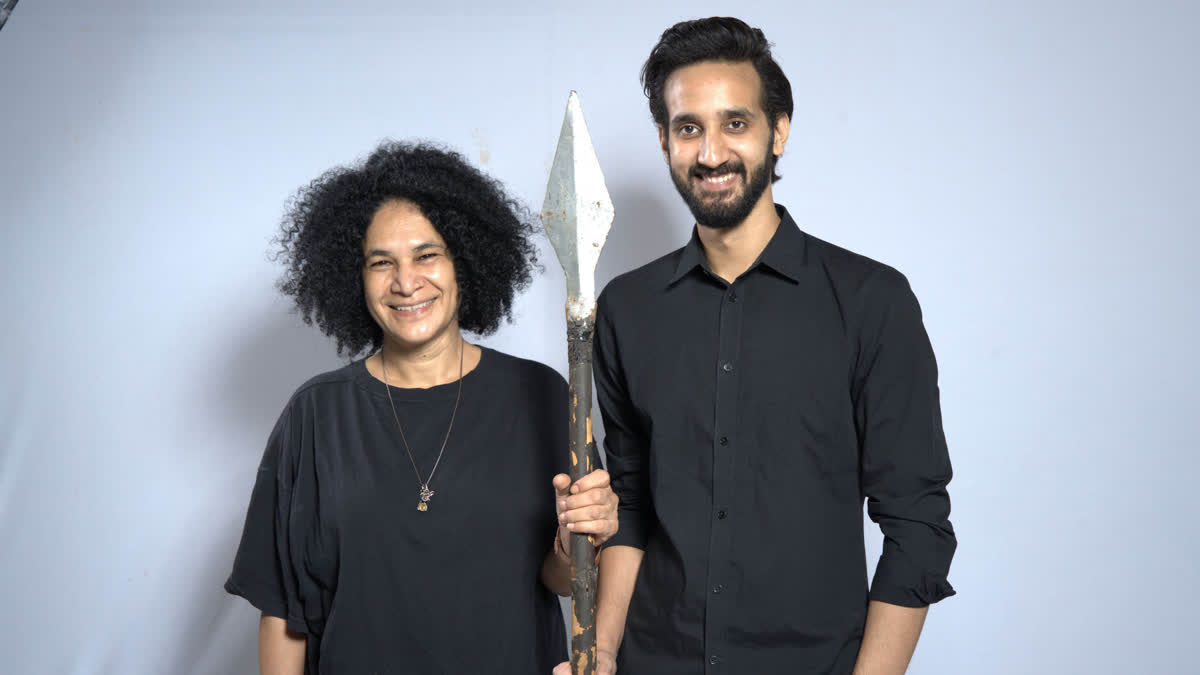When (theatre actor) Vishesh Arora's Kabir was mouthing the lines about how women speak on an average 7000 words a day and men maximum 2000, it hit him hard as he says – “I was in a six-year relationship... I would be exhausted after work. It is not that I didn’t want to speak but I was out of words,” says Arora, the sole actor of (Iceland based company) Theater Mogul’s famous production Defending The Caveman. A hilarious take on the battle of sexes and how men and women relate, is currently being staged in Mumbai. The play holds the record for being the longest-running solo play in Broadway history and it has arrived in India for the first time. Since it required a male actor doing a one-man show, the female director – (Heeba Shah) -- provides the right balance as the play essentially talks about men and women finding a way to come together and be happy with each other. “It is understanding when to hunt and when to gather. The day we stop telling women to be like us and women telling us to be more like them, it is going to be a lot easier for both,” says Arora while sighting another situation from the play --“Post coital and before coital that does happen... we feel like we are making it easier for the women to reach an orgasm but we do not understand how difficult it is for a woman (to reach orgasm) and it all transpires from just that understanding.”
Defending the Caveman, written by American actor and comedian Rob Becker about the misunderstandings between men and women, has been seen in theaters around the world by more than eight million people in forty-five countries. It has been performed in over thirty languages. A blend of stand-up comedy, lecture, and therapy session, it attempts to resolve the war between the sexes. The play manages to stand up for the male viewpoint, while still being sympathetic to the female side of issues as well. Becker describes the play as a vehicle for showing that "men have emotions, but they express them differently". After a swift exit from a house party, the actor sees a vision and gets visited by a Caveman. He tells us stories about his own marriage and compares the ways we interact with our significant other with the way things used to be back in prehistoric times when men and women were hunters and gatherers. The show is not just a laugh-a-minute comedy but also an honest depiction of love and living with a partner, a comedic exploration of relationships, and modern-day misunderstandings that leaves audiences in splits with its unique blend of humour, insight, and heart.
Once the theatre Mogul team decided that Mumbai was their next stop, the hunt for the ‘caveman’ began. After multiple auditions, Vishesh Arora made the final cut. “We have adapted the play to suit the Indian sensibilities, that’s why we were very clear that we will have an Indian Director and an Indian actor," says Jiten Bhagat, the show’s Associate Producer in India. "This play resonates with audiences because it’s rooted in universal experiences. Whether you're single, in a relationship, or somewhere in between, you’ll find yourself laughing and nodding along," he further adds. After Mumbai, Defending The Caveman will next travel to Pune and probably other metropolises like Delhi, Bangalore, Kolkata...
Heeba Shah who is not new to monologues was roped in to direct the performance. Daughter of renowned theatre and film actor Naseeruddin Shah, besides acting in plays and films, Heeba has directed five plays for her production house Alchemy, including What Happened? and Anokhi Nishani. After some thought, she agreed to Theater Mogul’s proposal. Heeba was of the view that the chosen actor should not be from the current crop, and after an open audition of over 30 performers, the role was given to New Delhi-bred Vishesh Arora who currently lives in Mumbai. “I wanted an actor above 35 because I wanted a more mature and understanding person to play Kabir. Vishesh is sweet looking and has those harmless looks ...he is that kind of a person who women would feel, ‘haan bechara’ (laughs). He is a great actor with a lot of energy,” says Heeba. Arora has been on stage since he was five. He did a lot of plays in New Delhi and also trained under theatre personality Dilip Shankar. "The whole rehearsal process was a collaborative effort," says Arora.
“It was not difficult to adapt this play because visually there were only three sections that we had to adapt. We adapted and changed small things like we changed names of streets ...we decided to show Bandra [Mumbai] as it is a much more cosmopolitan area. We changed baseball to cricket and we changed the film references ...from James Dean to Dev Anand, Dara Singh ...The format of the script is the same as the original, we have not tried to mess with it much, we just changed those references that were sounding too foreign. Talking about the social issues not much change was needed as the script talks about men and women. There is one place where there is a reference to mother and that I changed to mother-in-law because in our society mother-in-laws are somehow important. The original script has a structure so you can’t mess with it too much. You can’t add anything, you can only adapt,” Heeba explains.
